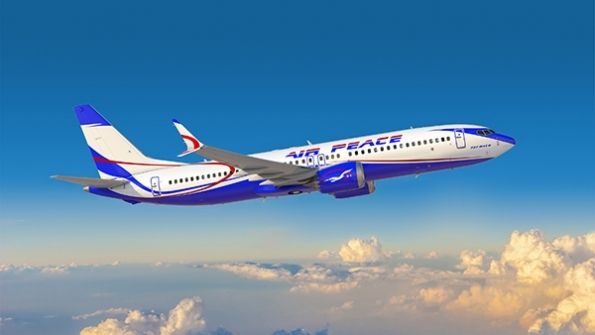The aviation sector in Nigeria has recorded a historic milestone as Air Peace, the nation’s largest privately owned airline, secures approval to operate direct passenger flights between Lagos and São Paulo, Brazil. This development follows the signing of the Nigeria–Brazil Bilateral Air Services Agreement (BASA), sealed during President Bola Ahmed Tinubu’s recent state visit to Brazil. The agreement not only establishes the first-ever direct air link between both nations but also signals a new phase in strengthening trade, cultural exchange, and economic cooperation between Africa’s largest economy and South America’s biggest market.
The BASA, signed on August 25, 2025, by Nigeria’s Aviation Minister Festus Keyamo and Brazil’s Minister of Transport Silvio Costa Filho, was witnessed by both Presidents Tinubu and Luiz Inácio Lula da Silva. The two leaders described the agreement as a major step toward deepening bilateral ties, emphasizing its significance beyond aviation. Brazilian President Lula lauded the deal as an “essential step to strengthen the ties between our societies,” while Nigeria’s Minister of Information, Mohammed Idris, noted that it symbolizes a reconnection that is not only economic but also cultural and social, given the shared historical roots between both nations.
Air Peace, under the leadership of its Chief Executive Officer, Allen Onyema, has been designated as the carrier for this route. Onyema described the development as a landmark achievement, expressing the airline’s readiness to commence operations between late November and December 2025. The Lagos–São Paulo service will initially operate three flights weekly, with plans to expand frequency as demand grows. For travelers, the route represents a game-changing shift: instead of enduring over 24 hours of travel time through European or Middle Eastern transit hubs, passengers will now enjoy a direct flight of approximately seven hours.
The implications of this new air corridor are vast. Nigeria and Brazil share longstanding historical and cultural ties, particularly through the Afro-Brazilian heritage that has shaped communities in Bahia and beyond. The establishment of a direct passenger route is expected to significantly boost tourism, enhance trade flows, and open new investment opportunities. Business leaders see the development as a chance to foster deeper economic collaboration, particularly in sectors such as agriculture, biotechnology, and financial services, where both countries signed complementary agreements during the presidential visit.
However, the announcement has not been without criticism. While many Nigerians and Brazilians welcome the new aviation link, some citizens have voiced concerns over the relevance of the development in light of Nigeria’s pressing economic challenges. On social media, skeptics argue that only a minority of Nigerians can afford international flights, suggesting that the government should focus more on domestic issues such as security and poverty alleviation. Others have cautioned against the frequent pattern of Memoranda of Understanding (MoUs) that fail to materialize into tangible results. Despite these concerns, supporters insist that the Lagos–São Paulo route represents a concrete win, cutting travel times, easing business trips, and bringing Nigeria closer to one of its most important partners in Latin America.
The approval of Air Peace to operate the Lagos–São Paulo route under the Nigeria–Brazil BASA is more than an aviation milestone—it is a diplomatic and economic achievement. For Nigeria, it demonstrates the government’s commitment to expanding international connectivity, encouraging private-sector participation in aviation, and positioning the country as a hub for African and trans-Atlantic travel. For Brazil, it represents a renewed focus on South–South cooperation, especially with countries with whom it shares historical and cultural bonds.
As commercial flights prepare to take off later this year, the Lagos–São Paulo route stands as a symbol of progress, opening a new chapter in Nigeria–Brazil relation. The true test will lie not only in the successful launch of flights but also in how both nations leverage this connectivity to unlock broader opportunities for trade, tourism, and cultural exchange. If effectively implemented, this route could become one of the most significant achievements in Africa–South America aviation history.






















































